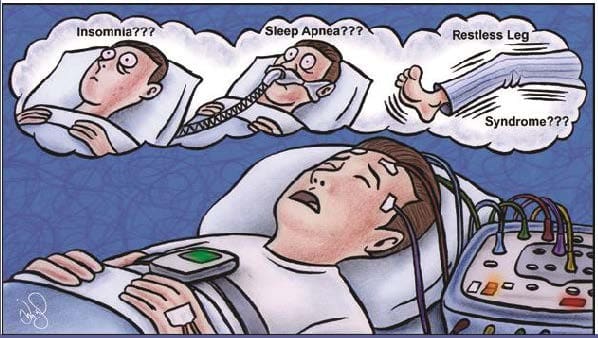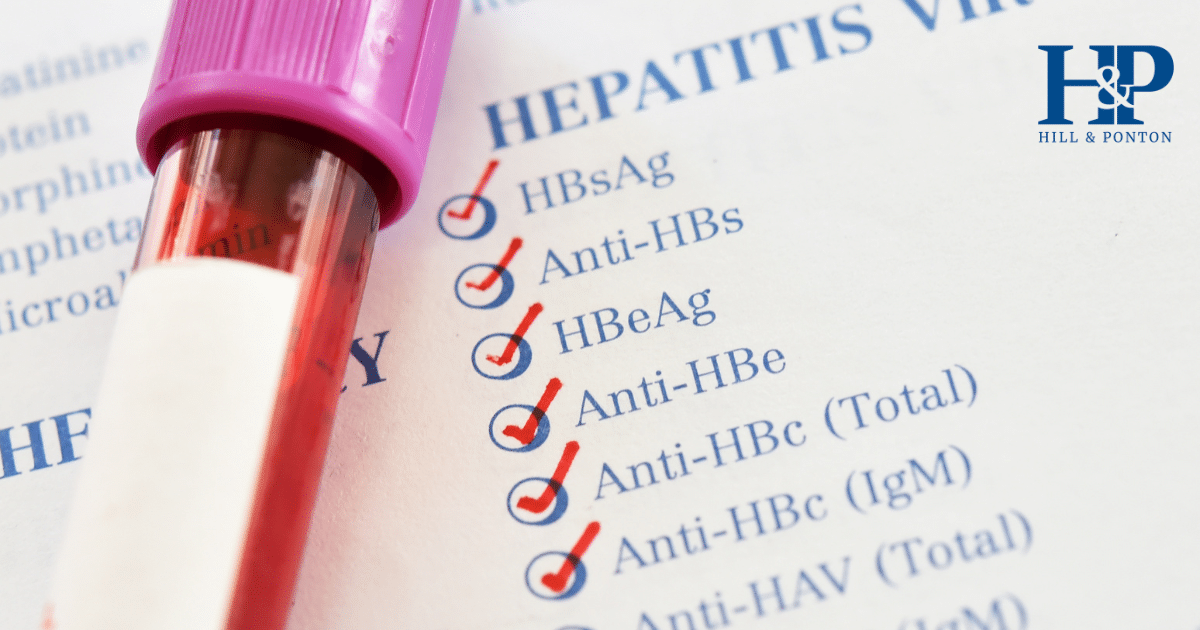According to the National Sleep Foundation, insomnia is a chronic sleep disorder, characterized by complaints of unsatisfactory sleep, despite having ample opportunity to sleep.
There are many different symptoms that go along with insomnia, but, the essence of this condition is difficulty falling asleep and/or difficulty staying asleep.
Some of the most common symptoms of insomnia include:
- Difficulty going to sleep
- Waking up during the night and having trouble returning to sleep or not being able to go back to sleep at all
- Waking up too early in the morning
- Non-restorative sleep
- Fatigue, sleepiness, and/or low energy
- Concentration problems
- Mood and behavioral problems, such as depression, irritability, impulsiveness, and/or aggression
- Cognitive problems
What Is Insomnia?
According to the National Sleep Foundation, insomnia is a chronic sleep disorder, characterized by complaints of unsatisfactory sleep, despite having ample opportunity to sleep.
There are many different symptoms that go along with insomnia, but, the essence of this condition is difficulty falling asleep and/or difficulty staying asleep.
Types of Insomnia
There are two main types of insomnia, which include:
- Acute Insomnia– usually lasts for only a short period of time, less than 1 month
- Chronic Insomnia– more complex than acute insomnia, chronic insomnia occurs several times per week and lasts for at least one month or longer.

Common symptoms of Insomnia
- Difficulty going to sleep
- Waking up during the night and having trouble returning to sleep or not being able to go back to sleep at all
- Waking up too early in the morning
- Non-restorative sleep
- Fatigue and/or low energy
- Concentration problems
- Mood and behavioral problems, such as depression, irritability, impulsiveness, and/or aggression
- Cognitive problems
What Causes Insomnia Among Veterans
Understanding the potential causes of insomnia can be essential to your VA disability claim.
While the central cause of insomnia is not always clear, some of the most common causes include:
- Psychiatric illness, such as depression, anxiety, and/or PTSD: these can be directly service connected.
- Chronic pain from other disabilities
- Chronic stress:
- Medications: Prescribed medications for other disabilities can lead to secondary insomnia.
- Crucial life changes
If you experienced any of the above factors during active duty, it may have led to insomnia following military service.
However, veterans need to prove service connection to receive disability benefits for this condition.
Further down, we discuss secondary service connection for insomnia due to another primary disability.
Obtaining Service Connection for Insomnia
When seeking service connection for insomnia, veterans should know that there must be an actual diagnosis of insomnia in the first place (as outlined by the current disability requirement).
If you’re interested in filing a VA disability claim, you will need to prove that your condition is connected to your time in military service.
To successfully establish a service connection, you’ll need to include the following three elements in your claim:
- A current diagnosis of insomnia from an authorized medical professional
- The description of the in-service occurrence that resulted in the diagnosis
- An official letter (medical nexus) from the diagnosing medical professional that states your disability was caused by the in-service occurrence.
There are a number of events that can lead to insomnia, including the loss of a fellow service member during combat or a sudden attack during a standard convoy mission.
Please note that the in-service occurrence or incident does not necessarily need to have taken place while the veteran is officially on active duty.
In other words, the VA does not consider whether you were on base or not when rating your disability.
Events that result in insomnia can be difficult to pinpoint, especially because years have often passed before the veteran experiences symptoms.
A veteran may have discussed their sleep issues with a doctor for an extended period of time before discovering the root cause of the problem.
C&P Examinations For Insomnia
If a veteran does not have an official diagnosis of insomnia, then depending on the existing evidence, the VA may order a Compensation and Pension (C&P) examination.
While it’s usually more beneficial to the claim if the veteran already has a diagnosis on file, a C&P exam can gather medical evidence to support a claim or provide a second opinion.
These exams generally take place at a designated VA clinic or hospital.
During the exam, the doctor is not there to treat your condition or provide any type of medication.
They will conduct a routine examination, which may include psychological testing.
The doctor may ask specific questions to understand more about the connection between your time in the service and your disability.
If your insomnia is caused by a physical condition, they may complete a standard physical examination during the exam as well.
After your appointment, the doctor will write a report and send it to the VA Regional Office (RO) for further review.
If you get an unfavorable exam result in which the doctor disagrees with your assessment, you are allowed to challenge their conclusion either through a private doctor or with the help of a healthcare advisor.
You can also submit your own statement.
In my experience, most veterans who suffer from insomnia did not have this condition during their military days.
Insomnia seems to develop years later, usually in response to some other service-connected disability; for example, chronic pain from a back condition or some other orthopedic condition, or, due to a psychiatric condition, such as post-traumatic stress disorder (PTSD).
If a medical exam determines that a veteran has insomnia that is caused by another service-connected disability, then he or she may be able to obtain a service connection for insomnia through a secondary service connection.
Secondary Service Connection for Insomnia
Insomnia can significantly impact a veteran’s life, and it’s often interconnected with various other health conditions.
When discussing insomnia in the context of VA disability claims, it’s crucial to recognize that insomnia can either be a primary condition or secondary to another condition.
Secondary conditions are those that are caused or aggravated by a primary service-connected condition.
Here’s a list of common secondary conditions related to insomnia:
- Mental Health Disorders: Insomnia is frequently found in veterans with PTSD (Post-Traumatic Stress Disorder), depression, anxiety, and other mood disorders. The symptoms of these conditions can significantly disrupt sleep patterns.
- Chronic Pain: Conditions causing chronic pain, such as musculoskeletal injuries, back conditions, and arthritis, can make it difficult for veterans to find a comfortable sleeping position, leading to insomnia.
- Respiratory Conditions: Issues like asthma or sleep apnea can lead to disrupted sleep, either through difficulty breathing or the use of devices like CPAP machines that may require adjustment periods.
- Traumatic Brain Injury (TBI): Veterans with a TBI may experience sleep disturbances, including insomnia, as a common symptom due to the brain’s regulatory mechanisms being affected.
- Gastroesophageal Reflux Disease (GERD): This condition can cause discomfort and pain, especially when lying down, leading to difficulties falling and staying asleep.
- Medication Side Effects: Some medications prescribed for primary conditions (such as pain or psychiatric medications) can have side effects that include insomnia or other sleep disturbances.
- Endocrine Disorders: Conditions affecting the endocrine system, such as thyroid disorders, can disrupt sleep patterns due to hormonal imbalances.
- Cardiovascular Conditions: Heart disease and hypertension can cause nighttime symptoms that disturb sleep, such as chest pain or elevated heart rate.
Recognizing the relationship between insomnia and these secondary conditions is important for veterans filing for VA disability benefits.
If insomnia is a symptom or consequence of a service-connected condition, it’s possible to claim it as a secondary condition.
This requires medical evidence showing the link between the primary service-connected condition and insomnia.
Veterans are encouraged to document their symptoms, seek medical advice, and consult with a VA-accredited representative to ensure their claims accurately reflect their health status and its impact on their quality of life.
Did the VA Deny Your Disability Claim?
Let our team review your case today!
Get a Free Case EvaluationService Connection by Aggravation
If you were diagnosed with insomnia prior to military service, you may still be able to file a disability claim.
To do so, you will need to show that your time in the service aggravated your symptoms and made the condition worse.
The VA defines service connection by aggravation for insomnia as the inability to sleep worsening after enrollment.
However, it’s important to note that this is different than a natural progression of a condition.
For example, this can apply if your insomnia was originally caused by the lingering pain from an old knee injury you sustained in high school.
During treatment, your doctor indicated that the discomfort would gradually increase over time. In this case, insomnia as a secondary condition would be caused by the residual effects and progression of a prior condition.
VA Disability Ratings for Insomnia and Sleep Disturbances
| Rating (%) | Symptoms/Conditions |
|---|---|
| 0 | Diagnosed insomnia or sleep disturbances but with minimal or no impact on daily functioning. |
| 10 | Mild insomnia or sleep disturbances with slight impact on daily functioning. |
| 30 | Moderate insomnia or sleep disturbances with occasional decrease in work efficiency and intermittent periods of inability to perform occupational tasks, but generally functioning satisfactorily, with routine behavior, self-care, and conversation normal. |
| 50 | Severe insomnia or sleep disturbances with reduced reliability and productivity; impaired social and occupational functioning, but not wholly incapacitated. |
| 70 | Severe insomnia or sleep disturbances with deficiencies in most areas such as work, school, family relations, judgment, thinking, or mood. |
| 100 | Total occupational and social impairment due to insomnia or sleep disturbances, with symptoms such as persistent hallucinations, grossly inappropriate behavior, persistent danger of hurting self or others, intermittent inability to perform activities of daily living (including maintenance of minimal personal hygiene), disorientation to time or place, memory loss for names of close relatives, own occupation, or own name. |
It’s important to understand that VA does not have a designated diagnostic code for Insomnia by itself under the VA rating schedule.
To quote VA’s text, “The disability is currently rated by analogy to a mental health disorder, and the Board finds that the diagnostic codes for mental health disorders most closely approximate the Veteran’s insomnia“.
So this means, insomnia could be rated like mental disorders which range from 0% to a 100% disability rating, per the Schedule of Ratings for Mental Disorders (38 CFR § 4.130) meaning it is possible to receive over $3,000 from the VA for service connected insomnia issues.
While a 0% rating may not be enough to qualify for benefits, it typically means that the insomnia is not affecting the veteran’s life severely.
The higher the rating, the more significant a veteran’s life is impacted by their disability – in this scenario, insomnia.
In the next sections, we will discuss TDIU for insomnia as well as other sleep disturbance disabilities that are frequent among the veteran population.
TDIU for Insomnia
The VA offers Total Disability based on Individual Unemployability to veterans who are unable to work due to a service-connected disability.
To qualify, a veteran must prove that they are unable to find and maintain gainful employment due to their condition.
Remember that earlier we pointed out earlier that Insomnia does not have its own official diagnostic code or rating, but instead it’s usually compared and rated like mental disorders.
The good news there is that mental health disorders could qualify you for VA unemployability if your rating is at least 60% or higher and you cannot work substantially.
Those who don’t suffer from insomnia often times don’t realize just how much effort goes into trying to lead a routine life.
TDIU represents an opportunity for veterans to maximize their disability compensation.
Learn more about how it could benefit your situation by clicking below for further information.





